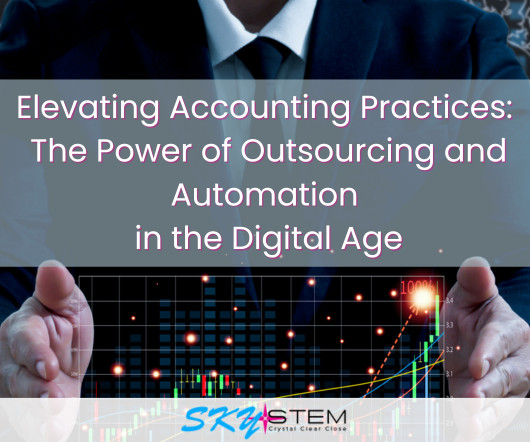Accounts receivable definition
Accounting Tools
JUNE 17, 2023
Related Courses Bookkeeping Guidebook Effective Collections How to Audit Receivables What is Accounts Receivable? Accounts receivable refers to money due to a seller from buyers who have not yet paid for their purchases. The amounts owed are stated on invoices that are issued to buyers by the seller. The issuance of an invoice implies that the seller has granted credit to a customer.
























Let's personalize your content